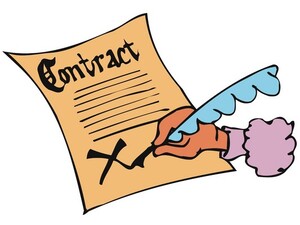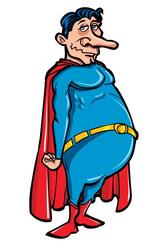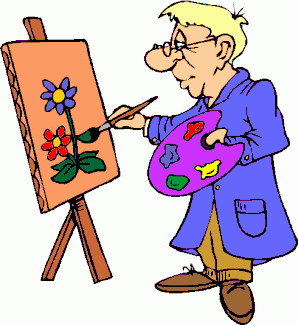 It is the dream of all Indie authors: to snag an agent or a publisher and get that elusive publishing deal. Yet so few Indie authors are able to fulfil that dream. But it is achievable, and it is probably easier than you think. However, it is also somewhat counterintuitive to do what is necessary to fulfil the dream. It may also require the author to make a few compromises. OK, if it’s that easy, tell us the secret, oh Selfishgenie. OK, we will.  The first thing you have to do is recognise that publishers hate taking risks with new authors. Risk threatens to reduce profits and there are stories in the industry of publishers being left with warehouses full of books because they took a gamble on a new author that didn’t pay off. These stories are probably apocryphal, but they are enough to give publishers nightmares. In that case how do new authors ever get signed? The answer to that is that it isn’t always the author themselves that represents the risk. It’s the type of book they are writing. The author may be the next Ernest Hemingway or Hilary Mantel in terms of the quality of their writing, but if they aren’t writing the sort of books that readers want to read, then they will never become bestselling authors. It is quite possible that in today’s market, Hemingway would also be unable to find a publisher because his type of books aren’t selling these days (my speculation, of course) Which is why new those authors represent a risk. This is where things become counterintuitive.  You may think that to get that elusive publishing deal your book has to be different from what is already out there in the bookstores. You would be wrong. It's the exact opposite. Your book has to be the same (or at least similar) to what is already out there. To de-risk their industry, publishers follow the reading fashions. If J R R Martin’s books are selling, then publishers are hungry for books just like his. If Lee Childs’ books are selling, then publishers will also be hungry for books like his. So, if you want to snag that elusive publishing deal, your books have to follow the fashion. By publishing books that are what the public is reading at that moment, publishers are able to de-risk their products Give the public what they want and they’ll come flocking to your door.  We already see this in cinema, of course. In the last decade, 5 of the top 10 box office hits were superhero movies, four of which were from the Avengers franchise and the 5th was Black Panther. Of the remaining 5 one was from the Star Wars franchise, another was from the Jurassic Park franchise and two more were Disney films, which are always popular. If that’s what the public wants, is it any surprise that we get so many superhero films, Star Wars films, Disney films et al? And the same applies to books. This desire to follow the fashion then feeds back to agents. If publishers want a particular type of book, then agents will want to find authors who are writing that type of book. Because it is easier, and more lucrative, to sign authors who are writing the sorts of books that publishers are looking for. So, sending an agent something different is not going to get you signed. Of course, going to Bloomsbury or Scholastic Press and offering them a Harry Potter clone isn’t going to help the Indie author. After all, those two publishers already have the original Harry Potter. No, you need to approach a publisher/agent that hasn’t got Harry Potter and offer them your clone.  At the same time as responding to fashion, publishers also create reading fashions. After all, if all the publishers are producing Harry Potter clones, then that limits the choice for readers, so they buy them even if they would actually welcome a change. We see this each year with clothing fashions. If manufacturers decide that green baseball caps are going to be “in” this year that is what they will produce, and they will pay “influencers” to get the public to wear them. Pretty soon all you will see will be green baseball caps! Then, next year, because everyone already has a green baseball cap, they’ll switch the colour and repeat the trick so they can sell more product. And we fall for it, so we only have ourselves to blame. Exactly the same methods apply with books. But you don’t want to write Harry Potter clones or Jack Reacher clones, do you?  You have your own story ideas and those are the ones you want to work on. You have “artistic integrity” and you won’t be dictated to with regard to your plots, your characters or your writing style. OK, I respect that. But artistic integrity doesn’t put food on the table. When you are a big name writer you have a bit of power that you can exert. Your name alone will sell books. That means your publisher is likely to be more flexible about what they will buy from you. And if they aren’t flexible, your name is big enough to open doors to other publishers who might allow you to write what you want, because you no longer represent a risk. You are “box office”, as they say in the movie making world.  It’s the reason why celebrities who can barely write their own names are able to get publishing deals. It’s not the quality of the book that sells it, it’s the name on the cover,. But you have to be a “name” first and that may mean compromise. Write what the publishers want now, so you are granted the freedom to write what you want to write in the future. So, what should you be writing right now in order to snag that contract? The answer to that is likely to change from month to month and year to year, which isn’t helpful. The best sellers list on Amazon will tell you what is fashionable right now as will the Sunday Times (or New York Times in the USA) best sellers list, but that won’t tell you what will be fashionable in 6 months’ time when your book is ready for querying. Fortunately, fashions in reading change quite slowly, certainly slower than they do in clothing, so you probably have time to get on the bandwagon with your next book. The top three genres (UK) to write in are Crime and Thrillers (33% of the market) , Fantasy Fiction (22%) and Action & Adventure (20%). There are, however, subdivisions below those headline genres and not all of them are as popular as others. But what you will probably notice is that the most popular books right now are character led, not plot led. Less popular at the moment are Modern Classics (No idea, but they are only 11% of the market), Horror (11%) and Short Stories (14%)* Some genres are so unpopular that their market share doesn’t even register on the graphs.  Some publishers do allow themselves to take a few risks. They look for good new writers and offer them publishing deals. However, they won’t throw a lot of money into marketing their book. At least, not the first one. The first print run of the hardback version of Harry Potter and the Philosopher’s Stone was only 500 books, most of which went to libraries. That’s how much faith Bloomsbury had in J K Rowling for her first book. Fortunately it was the American market that saw its potential and made her the best-seller she is, while the UK market caught up later. So, yes, you might find an agent and a publisher willing to take a risk on you even if you aren’t writing whatever is fashionable. But it is probably going to be a harder furrow to plough. * Figures for 2020, the most recent we could find from a reliable source. If you have enjoyed this blog, or found it informative, then make sure you don’t miss future editions. Just click on the button below to sign up for our newsletter. We’ll even send you a free ebook for doing so.
0 Comments
Leave a Reply. |
AuthorThis blog is compiled and curated by the Selfishgenie publishing team. Archives
June 2025
|
 RSS Feed
RSS Feed